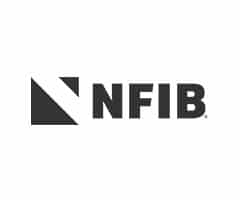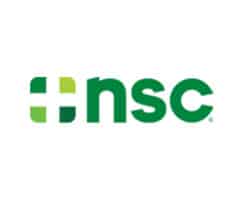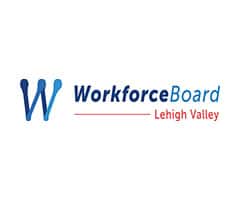2021 may bring some normalcy back to the workplace, but some changes are going to stick. Here’s what you need to know.
Whether you’ve been unemployed and looking for a job through the pandemic or are planning to leave your current role in 2021, it’s no secret that hiring has changed in many ways. From remote onboarding to a shift in where we network and look for job opportunities, there have been fundamental changes in how we get our next gigs. And even as the promise of vaccines and immunity give us a glimpse into a future where we’ll be back in the office again, some things are here to stay.
“During the eight months of the pandemic, we basically saw a lot of rules around how work gets done, be broken, or fall by the wayside,” says Erica Volini, global human capital leader at Deloitte. “People worked in radically different ways, whether that’s crossing functional silos, whether that’s teaming, whether that’s working in different industries in different sectors, assuming new roles very quickly.” And once you change the way you work, it can be tough to go back to the old way of doing things, especially if the new way works.
As the pandemic era gives way to a hybrid approach to work, the way we look for jobs will remain changed too. Here’s what job hunters can likely expect in the “next normal” in 2021:
INTERNAL TALENT MARKETPLACES WILL GROW IN IMPORTANCE
“One of the biggest trends that we are going to see in a post-pandemic world is a heavy focus on people looking for new jobs within their organization,” Volini says. Organizations will be looking internally first, sometimes on sophisticated, technology-enabled platforms, to find the right mix of skills and capabilities, she says. These marketplaces can also track employee development.
According to a recent Deloitte report, this approach helps organizations apply the talent they already have more effectively. Eventually, such marketplaces are expected to evolve into a place where employees can find stretch roles, gig assignments, mentors, and other opportunities to develop their skills. Such internal focus means that employees will need to become more adept at navigating these systems, including ensuring that their skills, training, and goals are up-to-date, to find their next roles.
YOUR DIGITAL PRESENCE WILL MATTER MORE
With remote connections still the primary way candidates connect with recruiters and hiring managers, they need to be diligent about their digital presence. Companies will increasingly find candidates through the content they develop online, says Abakar Saidov, CEO and cofounder of HR technology firm Beamery.
Hari Kolam, CEO of Findem, an HR platform that helps companies find candidates and manage their workforce, agrees. Candidates need to “move the focus from their résumés and place it more on developing their digital footprints to get noticed,” he says.
Clean up your social accounts, curate or create relevant content, and develop content—such as a blog post, introductory video, or contributed piece—that will demonstrate your thought leadership and give you an edge, he says. “Sure, a résumé is a nice-to-have and required for some applications, but it’ll just be table stakes in the 2021 job market and not enough to outshine a competitor,” he says.
EMPLOYERS WILL SEARCH FOR CAPABILITIES
As previously reported in Fast Company, Gartner data found one-third of the skills listed in an average 2017 job posting would not be relevant by 2021. As roles are reimagined, and companies need employees with skills such as problem-solving and adaptability, those skills should be evident on your résumé and in any content you create, Volini says.
“We’re starting to see technology that can actually then tell you, based on your capabilities, here are all the different types of jobs that you might be equipped for within the organization. Here are the multiple different career paths that you can start to take. And, so it starts to open up a brand new dialogue,” she says.
As more companies recognize the importance of internal mobility, she predicts there will be a shift in culture that emphasizes managers’ responsibility to develop talented employees, rather than wanting to hold onto them for their teams. That’s going to help employees have more frank conversations with managers about their goals and development.
GEOGRAPHIC OPTIONS WILL INCREASE
With so many remote opportunities opening up, geography is becoming less of a factor in where you’ll look for a job, says Amelia Ransom, senior director of diversity and engagement at tax compliance software firm Avalara and former talent director at Nordstrom.
So, while you may not have considered a company in New York or California because you would need to relocate, now that remote work is so prevalent and, for many companies, permanent, you can expand your geographic parameters. “Job seekers will now be looking for companies that have increased flexibility to accommodate different work hours, time zones, and in-person requirements as they are looking for the right position,” she says.
UPPING YOUR PRODUCTION GAME MATTERS
As videoconferencing has become such an important part of work for many, expectations around production quality are shifting, Kolam says. “When you have high-quality sound and lighting, as well as a better-than-decent headset to block out distractions, you’re set up for success for video interviews and interactions with prospective employers,” he says. Creating a mini-production center to ensure your audio and video are both high-quality can help set you apart, he says.
It also helps for job seekers to have a tracking system and a personal CRM, “anything from an Excel document to an Airtable that can help them organize their job search and keep track of job openings, job descriptions, company overviews, and follow-up timelines,” he adds.
ONLINE NETWORKING WILL CONTINUE TO GROW
Kolam says that online professional groups and job-search groups where people provide job leads, advice, and opportunities to peers have surged and will remain popular. The ease of connecting through social media or getting together for coffee over a video chat versus getting together in person will make it an ongoing tool for people who want to be time-efficient, keep in touch with contacts, and form communities.
You can find various special-interest and regional online networking opportunities on sites such as Eventbrite and Meetup. Check LinkedIn and Facebook for industry-, region-, and interest-specific online networking groups. Some organizations, such as local Chambers of Commerce and business groups, also host online networking opportunities.
IT MAY BE HARDER TO FIND THE RIGHT FIT
A key area that will be tougher for job seekers is determining whether the firm’s culture is a good fit for you, says business psychologist Matt Kerzner, director at the Center for Individual and Organizational Performance at advisory and accounting firm EisnerAmper. In other words, you can get a feel for the place by walking around, seeing the people, looking at the break room, etc. “We don’t have that right now, in today’s environment, and that gets really tricky.”
People could soon realize they’ve made a big mistake when they get a dose of the company’s culture. So, job seekers will have to become better sleuths, using social media, networking, and insightful questions to get a true sense of the company’s culture.
For many companies, shifts to remote work and new demands on most employees have changed what we took for granted about the job-search process. Like so many other work-life areas, adaptability to the new norms and willingness to explore new ways of working will be valuable assets to help you succeed.











